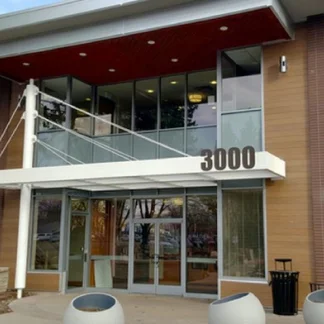TEAM Wellness and Prevention
TEAM Wellness and Prevention is a private rehab located in Colorado Springs, Col...
Creative Counseling Services provides outpatient substance abuse counseling services. Creative Counseling Services is located in Fort Collins, Colorado.
The goal of Creative Counseling Services is to provide support, education, and treatment to individuals with substance abuse and/or mental health issues in an effort to enhance their personal lives, reduce recidivism rates, and increase community safety.
Contact us for more information: (970) 221-4057

Connect with Creative Counseling Services by calling their admissions team directly.
(970) 221-4057 Website Get DirectionsCognitive Behavioral Therapy (CBT) is a therapy modality that focuses on the relationship between one's thoughts, feelings, and behaviors. It is used to establish and allow for healthy responses to thoughts and feelings (instead of unhealthy responses, like using drugs or alcohol). CBT has been proven effective for recovering addicts of all kinds, and is used to strengthen a patient's own self-awareness and ability to self-regulate. CBT allows individuals to monitor their own emotional state, become more adept at communicating with others, and manage stress without needing to engage in substance abuse.
Group therapy is any therapeutic work that happens in a group (not one-on-one). There are a number of different group therapy modalities, including support groups, experiential therapy, psycho-education, and more. Group therapy involves treatment as well as processing interaction between group members.
In individual therapy, a patient meets one-on-one with a trained psychologist or counselor. Therapy is a pivotal part of effective substance abuse treatment, as it often covers root causes of addiction, including challenges faced by the patient in their social, family, and work/school life.
Group therapy is any therapeutic work that happens in a group (not one-on-one). There are a number of different group therapy modalities, including support groups, experiential therapy, psycho-education, and more. Group therapy involves treatment as well as processing interaction between group members.
In individual therapy, a patient meets one-on-one with a trained psychologist or counselor. Therapy is a pivotal part of effective substance abuse treatment, as it often covers root causes of addiction, including challenges faced by the patient in their social, family, and work/school life.
In individual therapy, a patient meets one-on-one with a trained psychologist or counselor. Therapy is a pivotal part of effective substance abuse treatment, as it often covers root causes of addiction, including challenges faced by the patient in their social, family, and work/school life.
TEAM Wellness and Prevention is a private rehab located in Colorado Springs, Col...
Island Grove Regional Treatment Center is a private rehab located in Fort Collin...
Touchstone Health Partners is a private rehab located in Fort Collins, Colorado....
Cheyenne VAMC - Fort Collins Multi-Specialty Outpatient Clinic is a public rehab...